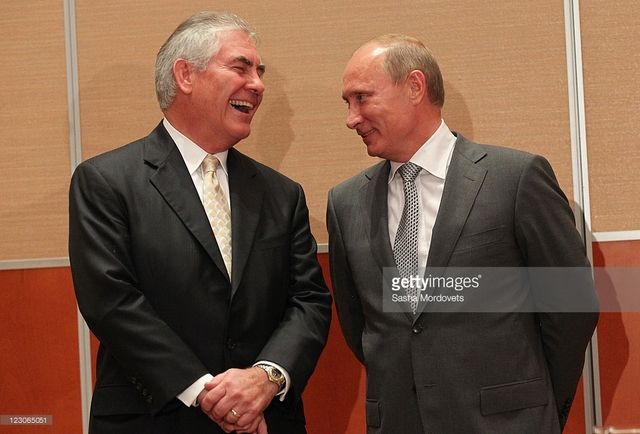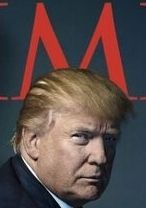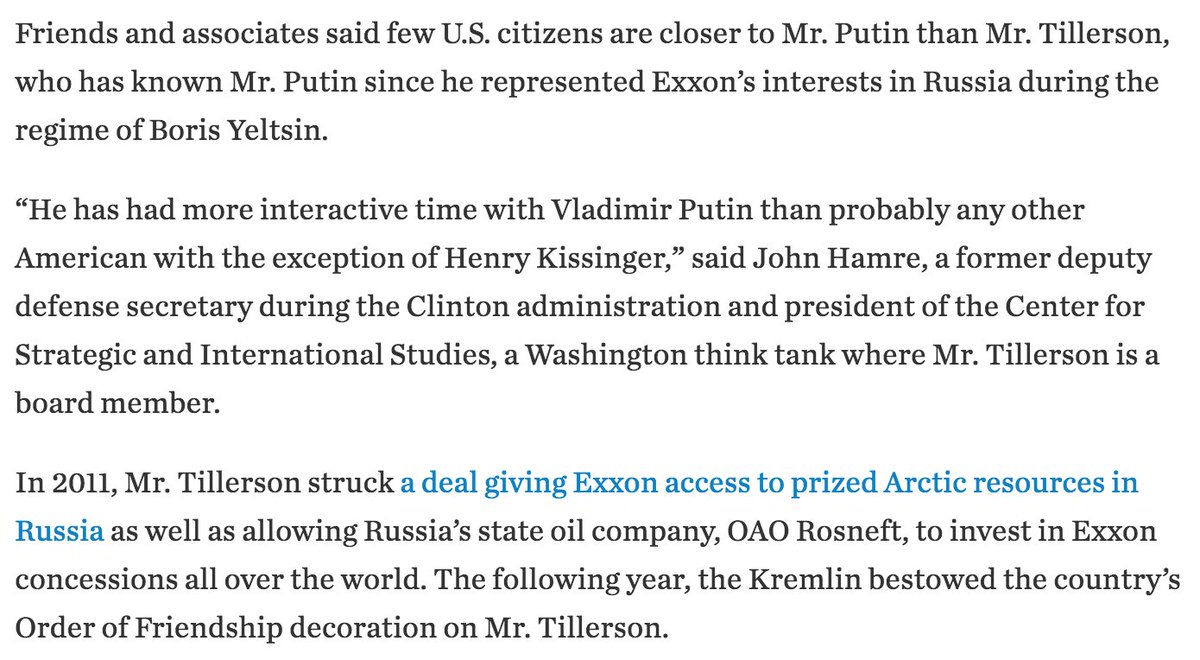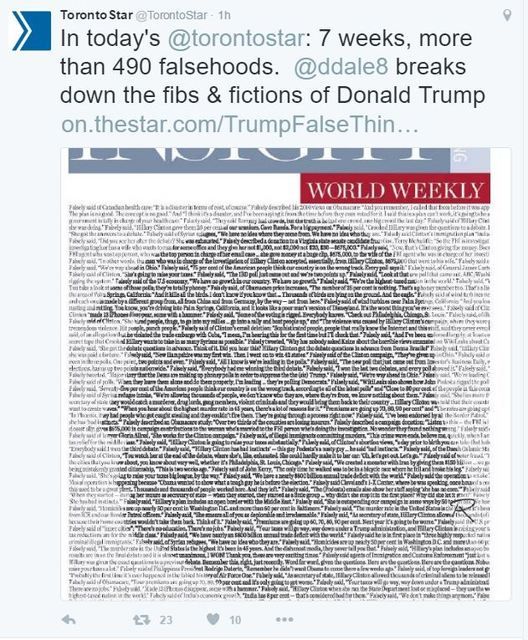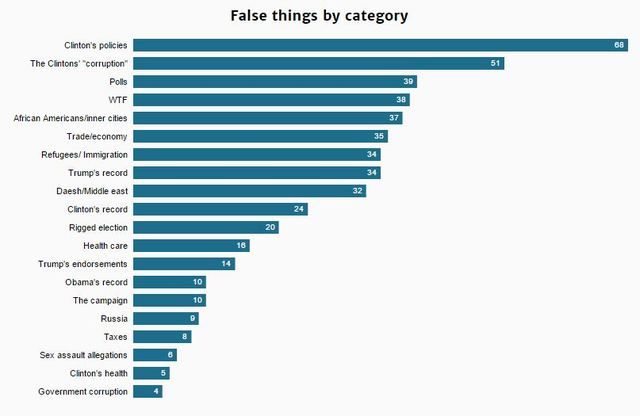Trump to inherit state-run TV network with expanded reachA provision tucked into the defense bill guts the Voice of America board, stoking fears that Trump could wield a powerful propaganda arm.
By TARA PALMERI 12/12/16 05:02 AM EST Updated 12/12/16 09:50 AM EST
“Congress unwittingly just gave President-elect Trump unchecked control of all U.S. media outlets,” said Michael Kempner, a Democratic member of the boardPresident-elect Donald Trump is about to inherit a newly empowered Voice of America that some officials fear could serve as an unfettered propaganda arm for the former reality TV star who has flirted for years with launching his own network.
Buried on page 1,404 of the National Defense Authorization Act that passed last week is a provision that would disband the bipartisan board of the Broadcasting Board of Governors, the independent U.S. agency that includes Voice of America, Radio Free Europe, Radio Free Asia, and the Middle East Broadcast Networks.
The move – pushed by House Foreign Affairs Chairman Ed Royce as a way to streamline the agency – concentrates control into a powerful CEO that is appointed by the president.
That change, combined with a 2013 legislative revision that allows the network to legally reach a U.S. audience, which was once banned, could pave the way for Trump-approved content created by the U.S. diplomacy arm, if he chooses to exploit the opportunity.
Essentially, Trump is finally getting his Trump TV – financed by taxpayers to the tune of $800 million per year. And some of the few people in the know aren’t happy about it.
“Congress unwittingly just gave President-elect Trump unchecked control of all U.S. media outlets,” said Michael Kempner, a Democratic member of the board who was appointed by President Barack Obama and was a Hillary Clinton donor. "No president, either Democrat or Republican, should have that kind of control. It's a public jewel. It's independence is what makes it so credible."
It’s unclear whether Trump is even aware about what he’s about to inherit. Trump as recently as September said he has “no interest in a media company,” but reports have emerged over the years of the billionaire exploring television opportunities beyond Trump Productions LLC, his TV-production business that includes “The Apprentice” and the Miss USA and Miss Universe pageants. Vanity Fair reported in June that he was considering launching a “mini media conglomerate” if he lost the election.
Trump transition spokespeople did not respond to requests for comment.
Now that Trump is getting for free a major media apparatus with loosened restrictions, both Democratic and Republican members of the current board are alarmed.
The Broadcasting Board of Governors is the largest public diplomacy program by the U.S. government, reaching an audience of 278 million by broadcasting in 100 countries and 61 languages. The agency was created in 1942 during World War II to send pro-Democratic news across Europe, as it aimed to counter Nazi and Japanese propaganda. The agency has since evolved into a more traditional news operation, while still pushing out the virtues of democracy worldwide.
To date, the nine-member board – which consists of four Republicans and four Democrats appointed by the president, as well as the secretary of state – has been a part-time operation, but it served as a firewall with the mission of preserving the integrity of the agency’s broadcasts. The organization's charter calls for "accuracy, balance, comprehensiveness, and objectivity."
A Republican government official familiar with the agency’s work warned that abolishing the board will make it susceptible to the influence of Trump’s allies, including his chief strategist, Steve Bannon, who ran Breitbart News before joining Trump’s campaign.
"There’s some fear among the folks here, that the firewall will get diminished and attacked and this could fall victim to propaganda," the Republican official said. "They will hire the person they want, the current CEO does not stand a chance. This will pop up on Steve Bannon’s radar quickly. They are going to put a friendly person in that job.”
Officials in particular fear that Trump and his allies could change the agency’s posture toward Russia, considering how Trump has betrayed a sympathetic nature toward President Vladimir Putin.
Multiple media outlets in the BBG family aim to counter Russia propaganda, including CurrentTime, which was introduced two years ago and broadcasts in Russia in the NPR model, and Radio Free Europe. With Radio for Asia, the U.S. also pushes back against China’s state messages, and Trump and his allies could potentially use the network to antagonize the country, which the president-elect already alarmed with his call with the Taiwanese president.
Because of the modification of the Smith-Mundt Act in 2013, the BBG can now broadcast in the U.S., too. But the influence on the domestic market could be even more subtle, the Republican official warned.
A BBG CEO influenced by the administration could penetrate established media outlets with packages, series or other news products produced by the BBG’s networks but picked up and aired by traditional media like Fox News or Breitbart. Many U.S. outlets currently use content from VOA.
“No money would even change hands, you’ve had no effect on the budget,” the official said. “But it will denigrate the product.”
The official added, “It’s extremely troubling. It’s going to be bad for U.S. international broadcasters and their credibility.”
In a sign of how significant the changes are, Hillary Clinton's transition team set up a meeting to visit the studios at 330 Independence Avenue the Wednesday following the election, according to two sources. The meeting was canceled after her loss, however, and the Trump transition team has not visited the studios.
But some top BBG officials are more measured in their reaction to Trump’s ability to influence the agency.
Jeff Shell, the chairman of the BBG’s board and an Obama appointee, said the changes to the agency’s structure were long overdue. "To have part-time board members to manage something like this is completely unrealistic, so I very much support the empowered CEO than a board,” he said, adding, “There’s always a risk with any federal agency, whether this administration or another that they’re going to use the organization in a partisan."
Rep. Ed Royce: "Our agencies that helped take down the Iron Curtain with accurate and timely broadcasting have lost their edge."
Royce, who pushed the provision, has long blasted the board as “defunct” and has called the agency “badly broken.” For years he has pushed broad reforms, insisting dramatic steps were necessary to make its international broadcasts more effective. He also floated the idea of rebranding the BBG as the “Freedom News Network.”
"Our agencies that helped take down the Iron Curtain with accurate and timely broadcasting have lost their edge," Royce said in a statement after the bill was passed in the House earlier this month.
"They must be revitalized to effectively carry out their mission in this age of viral terrorism and digital propaganda … My provision takes an important first step in this process by replacing the BBG’s part-time board with a permanent CEO to help better deliver real news to people in countries where free press does not exist."
The legislation also gives the president the power to appoint an advisory board -- which will consist of five members, including the secretary of state – but it has no statutory power.
The provision does, however, squeeze in a provision for an Inspector General from the State Department who would "respect the journalistic integrity of all the broadcasters covered by this Act."
Royce’s office did not comment when asked about the idea that Trump now has vast power to control the BBG.
Cory Fritz, a spokesman for the House Foreign Affairs Committee, said the reforms were not made with Trump in mind. “This isn’t about the president-elect. This is just the latest attempt to fight reforms that install basic standards of accountability at the BBG,” Fritz said.
The complaints about the agency have not been purely partisan. Former Secretary of State Hillary Clinton in in the past complained about the agency, also calling the board ineffectual and “defunct” in January 2013. Later that year, the BBG faced more controversy when it was revealed that less than 1 percent of Cubans listened to its expensive TV Marti service.
But in recent years, the agency took significant steps to clean up its act. Following the criticism, the operational board reorganized and appointed a CEO, John F. Lansing, to oversee day-to-day strategy and operations in late 2013. The result was a 23 percent increase in TV viewership to 174 million and a 27 percent increase in radio audience to 130 million in 2016. Digital audiences also increased from 32 million in 2015 to 45 million. The overall audience went up from 226 million in 2015 to 278 million in 2016.
After the bill passed through the House, Lansing sent a memo to BBG staffers promising that "the legislation makes NO change to the firewall between the federal government and the journalists of our five networks."
"As I stated at the Town Hall on Tuesday, maintaining our journalistic independence, and our credibility worldwide, remains of the utmost importance,” he wrote.
Karen Kornbluh, a Democratic member of the board appointed by Obama, reinforced the idea that the organization would not automatically bend to any president’s will.
"Although I preferred having the board because it’s always good to have checks and balance, I am sure that the staff will continue to report journalism with 'muscular objectivity,'" Kornbluh said at the BBG's last board meeting.
But some say this firewall is still not enough to protect the organization from the pressure of some of Trump's most media savvy advisers like Bannon.
"On Jan. 21 we’ll have welcoming ceremony for our next CEO, who could be Steve Bannon, or Laura Ingraham or Ann Coulter,” said a senior Voice of America staffer.
http://www.politico.com/story/2016/12/d ... ica-232442 






